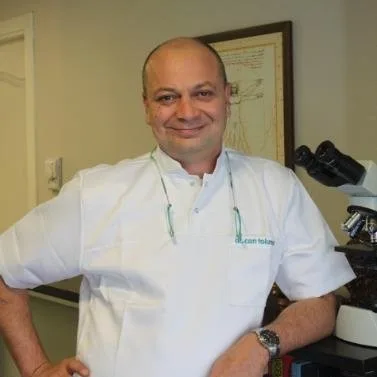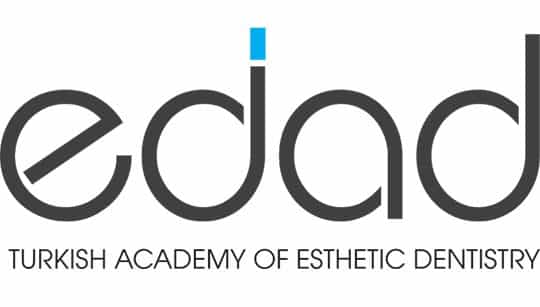The final adult teeth to erupt in your mouth are your back molars, which are also referred to as wisdom teeth. They come from the top and bottom of both sides – the average person has four wisdom teeth (1 in each corner) and generally there is no adequate space for them which can cause a number of issues.
After being removed, wisdom teeth do not regrow. The number of wisdom teeth a person has is not limited to four. Supernumerary teeth are these extra teeth, and they can appear anywhere in the mouth.
What age do wisdom tooth come in?
Typically, wisdom teeth begin to grow through the gums in late adolescence or early adulthood. By this time because the other 28 adult teeth are typically in position, there may not always be enough space in the mouth for the wisdom teeth to grow properly.
Wisdom teeth can occasionally emerge at an angle or get trapped and only partially emerge due to a lack of room. Impacted wisdom teeth are those that erupt in this way.
According to NHS, the removal of wisdom teeth (or third molars) is one of the most common surgical procedures carried out in the UK.
Symptoms of Wisdom Teeth
1.Gum Irritation – In the region behind the second molars, you could have mild gum irritation and see some gum swelling.
2. Aches and Pains – The development of wisdom teeth frequently results in a dull ache towards the back of the jaw, which for some people can progress to more frequent, severe pain.
3. Discomfort in Other Areas — Wisdom teeth can occasionally impinge on nearby nerves, resulting in pain in the jaw, eyes, and ears.
4. Redness – As the wisdom teeth start to erupt, the gums that are sitting on top of them may turn red or dark pink.
5. Tiny White Spots: It is obvious when tiny white specks start to appear below your second molars that your wisdom teeth are about to erupt. Your new teeth’s crowns are the white flecks you can see above the gum line.
How Long Does Wisdom Tooth Pain Last?
You may be worried about post-surgical pain if your wisdom teeth caused you discomfort before they were removed. Keep in mind that the removal of the wisdom teeth was done to eliminate pain, discomfort, and infection, so any discomfort you have following the treatment will only last a short time. Avoid letting your dread of pain prevent you from having your wisdom teeth removed. Delaying treatment if they are bothersome could result in catastrophic problems.
Most patients’ related pain will go away a week after having their wisdom teeth removed. The healing process for the socket typically takes two weeks to a month. After your operation, the discomfort will initially be severe, but it should go better over the next few days. It may take up to six months for the underlying bone to heal.
How do you stop you wisdom teeth from hurting?
The pain of wisdom tooth removal is typically minimal and tolerable for most of the people. Over-the-counter painkillers can typically relieve wisdom teeth pain if it gets painful.
On reduce any swelling, apply a cold compress to the outside of your face.
Please inform your dentist if any pain or swelling worsens. Talk to your dentist about your pain management choices if you have trouble with it. You might be able to get some other wisdom teeth pain alleviation from him or her.
Why is wisdom tooth need to be removed?
During routine visits and with the aid of dental X-rays, your dentist will keep an eye on the growth of your wisdom teeth. Your dentist they might discuss getting rid of them, If they’ve been impacted or have the potential to be an issue, such as the following:
- Infection
- Tooth decay (if it is not possible or desirable to restore the tooth)
- Damage to surrounding teeth
- Chronic gum disease
- Loss of bone
What happens if you dont get your wisdom teeth pulled out?
Your dentist may advise removal of your wisdom teeth for a variety of reasons, including crowding, sideward eruption, and the risk of bacterial infection.
X-rays, which often don’t begin to be taken until the age of 18, will determine whether or not your wisdom teeth need to be extracted. Overcrowding is one of the main reasons wisdom teeth need to be removed.
- Overcrowding: There just isn’t enough room in the mouth for 32 teeth most of the time. Your dentist can determine whether there is enough space for wisdom teeth to erupt through early x-rays. Your wisdom teeth will need to be removed if your mouth does not have enough room for them in order to avoid concerns with crowding that could result in crooked teeth and impaction. Impacted teeth increase the risk of infection because they have not fully emerged and are lodged below the gum line.
- Sideways erupting Unfortunately, wisdom teeth sometimes emerge horizontally through the gums rather than vertically like normal teeth. This could seriously harm nearby teeth, alter your bite, and lead to later problems that are more severe, painful, and expensive.
- Infection with bacteria. Only a few people have properly erupted wisdom teeth and enough room to accommodate them. However, it might be challenging to reach the back of the mouth to properly floss and brush due to the positioning of wisdom teeth. Gum disease and tooth decay are made more likely by poor oral hygiene and care.
How painful is the removal of wisdom teeth?
Because the area will be numb, you shouldn’t experience any pain as your wisdom teeth are removed. However, let your dentist or oral surgeon know if you have any discomfort so they can administer additional anesthetic if necessary. The duration of tooth removal will vary.
When should wisdom teeth be extracted?
If a person’s wisdom teeth are causing issues, they can be removed at any age. The optimum age range, however, is between 18 and 24. The root of a wisdom tooth can only be securely removed when it has grown to around two-thirds of its full size.
The more issues that may arise and potential harm to the neighboring teeth the longer you wait or delay. Your dental health expert can assist in spotting any issues early. Although a dentist can remove wisdom teeth, in some cases it may be necessary to refer the patient to an oral and maxillofacial surgeon who has undergone extra training and study in surgery related to the teeth, bones, jaws, and face.
When you are a teenager, the wisdom teeth’s roots are still developing, making removal simpler. If you wait until later in life, when the roots are completely developed, it can be more difficult. When your bone is younger, it may be simpler to remove wisdom teeth since it heals and recovers more quickly.
What To Expect After Wisdom Teeth Extractions?
The removal of wisdom teeth is an outpatient procedure, so you enter and leave the surgery facility on the same day. You’ll probably awaken in the dentist chair if you undergo surgery while under local anaesthetic or sedation. You will be transferred to a recovery room if you receive general anesthetic because it takes longer for you to wake up. It’s possible that you can’t recall how you made it from the dental chair to the recovery area. What kind of sedation to expect? Consult with your dentist.
Anesthesia has diverse effects on different people. In order to start your recovery, you might be allowed to drive home if you got a local anesthetic and feel awake. You might even be able to resume your regular activities or return to work. You will require a driver to take you home if you underwent general anesthesia or are still feeling sleepy.
Most patients experience minimal or no pain following surgery. For around three days, you’ll probably experience swelling and minimal discomfort. It can take a few weeks for your mouth to fully recover.
Dos and Donts after wisdom tooth removal surgery
Utilizing a saltwater rinse is the simplest technique to clean wisdom tooth holes. Simply combine 14 teaspoon of salt with a cup of warm water, stirring well to dissolve the salt, to create a saltwater rinse for wisdom teeth.
If this is the first day following the removal of your wisdom teeth:
- As you inhale, gently tilt your head from side to side to spread the mixture throughout your mouth. Do not spit it out or swish it about in your mouth.
- Lean over the sink and open your mouth to let the rinse out after giving it a thorough rinse.
The following advice is for the first three days following surgery:
Dos:
- To reduce swelling or alter the color of your skin, apply an ice pack to your face.
- For aching jaw, use moist heat.
- To strengthen your jaw, gently open and close your mouth.
- eat soft foods like soup, pasta, and rice.
- Drink a lot of water.
- Start brushing your teeth on day two. Avoid touching any blood clots.
- To reduce discomfort or swelling, take the medications that your doctor has prescribed.
- If you have a fever or notice no improvement in your discomfort or swelling, contact your doctor right once.
Don’ts:
- Don’t use a straw to drink. Sucking may cause blood clots to dissolve, allowing your mouth to heal.
- Avoid using abrasive mouthwash. Your doctor could advise using saltwater to gently rinse.
- Avoid eating anything sticky, crunchy, or hard since it could irritate your wounds.
- Avoid smoking. Smoking can make healing take longer.
Istanbul Dental Clinics Statement
While you cannot prevent an impaction, by attending your scheduled cleaning and examination appointments, you provide your dentist the ability to keep track of the development and eruption of your wisdom teeth. Before any symptoms appear, impacted wisdom teeth may be seen on routinely updated dental X-rays. When a tooth is pulled out, a temporary gap remains in the mouth that may take several weeks to several months to close and heal.
The creation of a blood clot is the first and most crucial step in the healing process for your tooth hole. Dry socket can happen if a blood clot does not form or becomes loose.Habits like smoking cigarettes or drinking through a straw might hinder the healing process. Following instructions, such as keeping the area tidy and getting enough rest, can hasten the healing process.
At Istanbul Dental, with our qualified team we are ready to answer your additional questions, so do not hesitate to get in touch with us . Also, get a quote to start planning your dental treatment as whole process including your VIP transfer! While gathering information and inspecting the options about the dental services, we recommend you to visit our smile gallery and see our previous patients’ sincere smiles.













